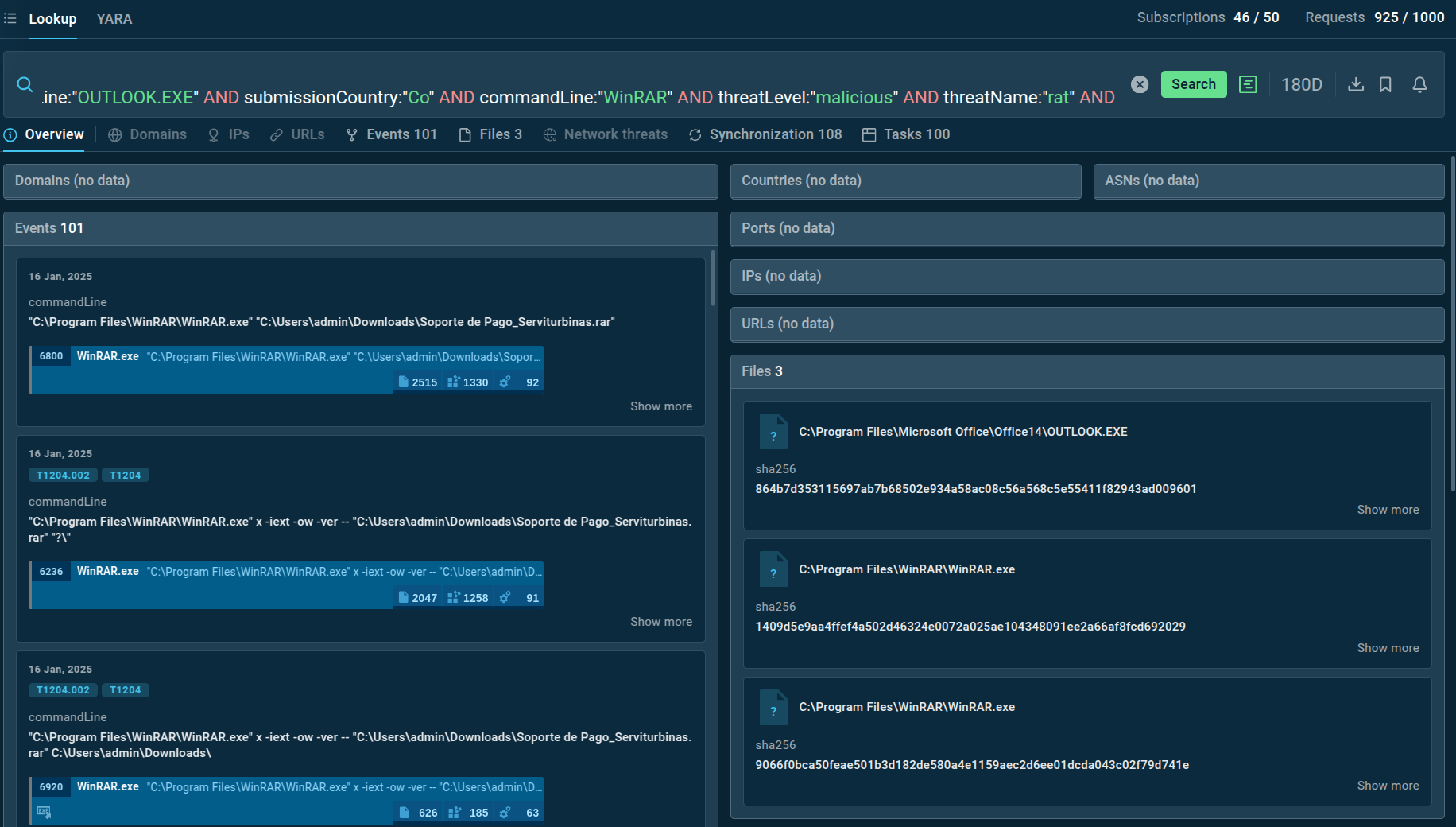Malware Trends Review 2024 – An Year With Highest Ever Recorded Cyber Threats
Last year witnessed an alarming escalation in cyber threats, with malware families evolving and attack tactics becoming more sophisticated than ever. According to a detailed analysis by ANY.RUN, a prominent interactive malware analysis platform, 2024 marked significant changes in the global cybersecurity landscape with highest recorded sophisticated malware threats. Surge in Malware Activity ANY.RUN processed […] The post Malware Trends Review 2024 – An Year With Highest Ever Recorded Cyber Threats appeared first on Cyber Security News.

Last year witnessed an alarming escalation in cyber threats, with malware families evolving and attack tactics becoming more sophisticated than ever.
According to a detailed analysis by ANY.RUN, a prominent interactive malware analysis platform, 2024 marked significant changes in the global cybersecurity landscape with highest recorded sophisticated malware threats.
Surge in Malware Activity
ANY.RUN processed 4,001,036 public sandbox sessions in 2024, a 33% increase from 2023’s 2,991,551 sessions. Of these, 790,549 were confirmed as malicious, while 211,517 were classified as suspicious, reflecting an uptick in suspicious activity compared to the previous year’s 148,124 sessions.
Additionally, the analysis uncovered an astonishing 1.87 billion Indicators of Compromise (IOCs), nearly three times the 2023 figure of 640 million. This surge underscores both the growing use of advanced malware detection tools and the increasing sophistication of cybercriminal tactics.
Top Malware Types of 2024
Among the various malware types analyzed, Stealers emerged as the dominant threat in 2024, surging to 51,291 detections compared to 18,290 the previous year.

This indicates a significant rise in attackers prioritizing data theft. Other notable malware types included:
TI Lookup is a great resource for gathering up-to-date threat intelligence. By searching ANY.RUN’s vast database, you can access valuable insights into emerging cyber threats, enabling you to stay ahead of potential risks.

Most Prevalent Malware Families
2024 saw a shakeup in malware family rankings. The previously unreported Lumma Stealer skyrocketed to the top with 12,655 detections, signaling rapid adoption by threat actors.

Other notable shifts included:
Popular names from 2023, such as Redline, saw a decline in prominence. However, the emergence of new challengers like Stealc and Xworm suggests the constant evolution of the threat landscape.
Get a 14-day free trial of ANY.RUN’s products to Analyse Advanced Malware Threats
Trends in MITRE ATT&CK Attack Techniques:
Leveraging the MITRE ATT&CK framework, ANY.RUN’s analysis identified significant trends in attacker tactics, techniques, and procedures (TTPs).
According to ANY.RUN report, In 2024, PowerShell abuse emerged as the top technique, with 162,814 detections, leveraging its flexibility for executing scripts on compromised systems.
Time-based sandbox evasion tactics also surged in popularity, with 134,260 detections, using time delays to avoid detection.
Additionally, email collection and spearphishing links remained potent tools for targeted attacks, underscoring the importance of user education and strong email security measures to defend against such threats.
Rank Technique ID Technique Name Detections 1 T1059.001 Command and Scripting Interpreter: PowerShell 162,814 2 T1059.003 Command and Scripting Interpreter: Windows CMD 148,443 3 T1497.003 Virtualization/Sandbox Evasion: Time-Based 134,260 4 T1036.003 Masquerading: Rename System Utilities 126,008 5 T1562.002 Impair Defenses: Disable Antivirus Tools 122,256 6 T1218.011 System Binary Proxy Execution: Rundll32 86,760 7 T1114.001 Email Collection: Local Email Collection 85,546 8 T1547.001 Boot or Logon Autostart Execution: Registry Run Keys 73,842 9 T1053.005 Scheduled Task/Job: Scheduled Task 68,423 10 T1569.002 System Services: Service Execution 51,345 11 T1059.004 Command and Scripting Interpreter: Python 50,002 12 T1036.005 Masquerading: Match Legitimate Name or Location 49,031 13 T1497.001 Virtualization/Sandbox Evasion: System Checks 47,630 14 T1543.002 Create or Modify System Process: Windows Service 39,231 15 T1053.006 Scheduled Task/Job: Cron 39,228 16 T1222.002 File and Directory Permissions Modification: Linux 38,760 17 T1566.002 Phishing: Spearphishing Link 35,272 18 T1059.005 Command and Scripting Interpreter: Visual Basic 27,213 19 T1562.001 Impair Defenses: Disable or Modify Tools 24,133 20 T1222.001 File and Directory Permissions Modification: Windows 19,275
The findings highlight the importance of advanced threat intelligence solutions.
Platforms like ANY.RUN’s interactive sandbox have proven invaluable for tracking emerging threats, offering over 40 search parameters to analyze malicious activity.
Their capability to detect and provide actionable insights into malware families and attack techniques is a crucial asset for staying ahead of attackers.
In 2024, cyber threats grew not only in number but also in complexity. The dramatic rise in Stealers, the rapid adoption of new malware like Lumma Stealer, and the dominance of scripting tools like PowerShell demonstrate that attackers are innovating at an unprecedented pace.
As we move into 2025, organizations must invest in layered defenses, advanced threat detection, and constant vigilance to combat the evolving cybersecurity landscape.
Are you from SOC/DFIR Teams? Try Free malware research with ANY.RUN
The post Malware Trends Review 2024 – An Year With Highest Ever Recorded Cyber Threats appeared first on Cyber Security News.











/cdn.vox-cdn.com/uploads/chorus_asset/file/24933461/236790_Apple_watch_9_Ultra_2_AKrales_0710.jpg)









